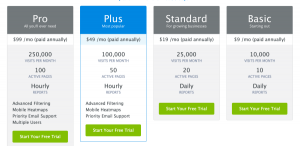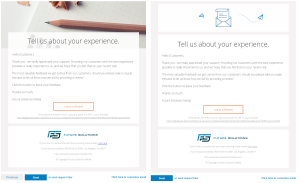Now that you are all grown up (or at least your birth certificate claims as much), the timeless question of your life’s purpose can hardly be neatly summed up into a single occupation. Chances are that since that early childhood “astronaut-vet-magician” stage, your priorities and your interests have changed quite a few times over, and to a great extent. Basically, life happened. When it does, it often leaves you wondering if you’ve chosen the right career path, and if you have one at all.
Thanks to digital innovation, reformed education, and evolving ideas of a professional path, a career is no longer bound to the idea of the nine-to-five cubicle as we know it. That is perhaps why so many people start contemplating the idea of a change, even when you’ve already wrapped up your college education and you have the skills and the resume you need to impress an employer in accounting. Perhaps that’s not your calling, or maybe it is. Let’s take a look at several key steps you can take to determine your own path in life. Just keep in mind, even when you do, nothing is set in stone. You can always build a brand-new career path for yourself later in life!

Expand your existing education
Even the finest schools aren’t perfect. All the knowledge and education we manage to accumulate in a lifetime can still be considered incomplete, and you always have the chance to look outside of your curriculum to add more skills to your set. For example, if you’re interested in the business world, you could benefit from taking online courses to complement your existing degree and knowledge. Luckily, many come free of charge, while others might cost a fraction of what many universities require, and you still obtain the key skills necessary for working in the said industry.
Be open to change
If you can afford not having a fully-developed career, you can also probably give yourself time to explore other career options to see what works best for you. Depending on your sphere of interest, you might need some hands-on experience to make the decision so unpaid internships, temporary work or part-time work could be helpful.
Some career changes are more radical than others, so for instance, if you studied law but you wish to become a nurse, the practical experience would need to come after attending medical school. Regardless if you opt for internships or returning to school, acing the entrance interview is a must. For example, in the case of med school, you can gather useful information by contacting current medical students to share their interview experiences. In any case, these interviews are not to be taken lightly because they come as perfect preparation for future job interviews.
Test your skills and preferences
There are some people who have a hard time deciding what they enjoy doing, or what they’re good at, even after they finish their education. This is perfectly normal and quite common, and after experiencing a few subpar work environments, it can be tricky to feel too passionate about your initial choices. So, why not make the most of modern-day tests that can help you refine your search?
You’ll find that there are many different tests out there. From those based on the psychology and your personality, all the way to those blends that combine personality traits with education, skills, and preferences, you can take your pick, try them all, and perhaps determine if any of them have shown you a clearer idea of the professional path you should take. When you do know at least roughly what kind of work you’d like to do, then there are more specialized tests to help you find the most optimal choices for you.

Talk to people in different positions
Now this is a different kind of an interview that you should prepare for, since asking the right questions will perhaps help you recognize your own strengths, and the kind of challenges you’d like to tackle for years to come. Now that you have a better idea of your aptitude and the kind of occupations that you might be best suited for, as well as the ones that interest you the most, you can look for people in those positions to talk to them in person and gather more information on those real-life situations in such jobs.
This is especially vital for positions that could potentially be highly stressful, but also incredibly rewarding, such as working as a firefighter, a police officer, a medical professional, or a social worker. The positions in question as well as many others of similar stress levels are rarely anything like the textbook examples, and they come with numerous prerequisites that can come in handy. Prepare your questions and talk in depth about the job you’re after, so that you know what you’re getting yourself into, so to speak.
From volunteering all the way to taking aptitude tests, there are all kinds of ways to simplify your career search. Hopefully, after implementing or combining a few of these, you’ll be well on your way to a profitable career that will bring you fulfillment and financial stability as well.
Business & Finance Articles on Business 2 Community
(27)




